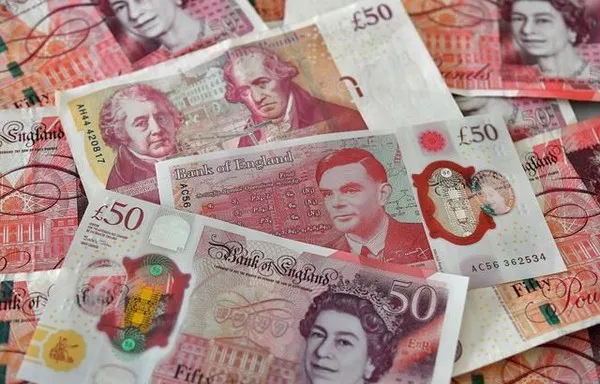The British pound sterling (GBP), often simply referred to as the pound, occupies a central and enduring role in the complex landscape of international finance. As one of the world’s oldest currencies, the pound has evolved over centuries, and today, it continues to play a pivotal role in global trade, finance, and investment. This article delves into the multifaceted role of the GBP in international finance, tracing its historical significance, examining its modern relevance, and highlighting its impact on the global economy.
Historical Roots: The Birth of the Pound
The origins of the British pound can be traced back to the 8th century, making it one of the world’s oldest currencies still in use. Historically, the pound was a unit of weight of silver, which was used as a medium of exchange in trade and commerce. Over time, the pound evolved into a recognized and standardized currency, reflecting the economic power and influence of the British Empire.
Historical Significance: A Currency of Empire
The British Empire’s vast reach during the 19th and early 20th centuries extended the use of the pound throughout the world. It became the official currency in many of the empire’s colonies and territories, creating a network of pound-based economies that facilitated trade and economic development.
The City of London, with its well-established financial institutions and banks, served as a global hub for finance and trade. The pound, as the primary currency of the United Kingdom, was at the heart of this international financial ecosystem, helping shape the global monetary system.
Modern Relevance: A Key Reserve Currency
Despite the dissolution of the British Empire and the decline of the pound’s global dominance, the GBP remains a key player in international finance. Here are some key aspects of its modern relevance:
Reserve Currency: The pound is one of the world’s major reserve currencies, along with the US dollar, euro, and Japanese yen. Central banks around the world hold significant reserves of GBP, using it to maintain exchange rate stability and facilitate international trade.
Global Trade: The United Kingdom is a major player in global trade, and the pound plays a crucial role in international transactions. It is widely accepted in international trade and serves as a reference point for exchange rates.
Financial Services: London’s financial district, often referred to as “The City,” remains a global financial powerhouse. The City is home to numerous international banks, asset managers, and financial institutions that conduct business in GBP.
Investment and Capital Markets: The UK’s capital markets, including the London Stock Exchange and the bond market, attract investors from around the world. The pound is central to these financial activities, serving as the currency of choice for transactions and investments.
Currency Markets: The GBP is one of the most actively traded currencies in the foreign exchange (forex) market, where it is paired with other major currencies like the US dollar (GBP/USD) and the euro (GBP/EUR).
Exchange Rates and Global Trade
The GBP’s exchange rate plays a vital role in international trade, affecting the cost of imports and exports for the United Kingdom. A stronger pound can make imports cheaper but exports more expensive, potentially impacting the country’s trade balance. Conversely, a weaker pound can boost exports but increase the cost of imports.
This exchange rate sensitivity has real-world implications for businesses, policymakers, and investors. It underscores the importance of monitoring and managing exchange rate fluctuations to maintain competitiveness in global markets.
Brexit and the Pound
One of the most significant recent events affecting the GBP’s role in international finance was the United Kingdom’s decision to leave the European Union, commonly known as Brexit. The Brexit process introduced uncertainty into the currency markets, leading to fluctuations in the pound’s value.
The transition period and negotiations between the UK and the EU led to both optimism and concerns about the pound’s future. Factors such as trade agreements, regulatory changes, and market sentiment have all influenced the pound’s performance since the Brexit referendum in 2016.
The Role of the Bank of England
The Bank of England, as the United Kingdom’s central bank, plays a pivotal role in managing the pound and its impact on the economy. The bank’s Monetary Policy Committee (MPC) sets the official interest rate, known as the Bank Rate, which influences borrowing costs and monetary policy.
The Bank of England also employs various tools and measures to maintain exchange rate stability and support the economy. In times of economic uncertainty or financial crises, the bank may intervene in the currency markets to stabilize the pound.
Global Financial Centers and the Pound
London, as a global financial center, is home to a multitude of financial institutions, including international banks, investment firms, and insurance companies. The GBP is central to the financial transactions conducted in the City, with many contracts and investments denominated in pounds.
The city’s role in international finance extends beyond the UK’s borders, as it serves as a hub for global financial activities. London’s deep and liquid financial markets, robust regulatory framework, and skilled workforce make it an attractive destination for international businesses and investors.
Conclusion
The British pound sterling (GBP), with its rich history and enduring relevance, continues to occupy a prominent place in international finance. It is a major reserve currency, a key player in global trade, and a linchpin in the world of financial services and investment. While its role has evolved over the centuries and faced challenges, the pound remains a symbol of financial stability and influence. As the global economy continues to evolve, the GBP will undoubtedly adapt and play an integral role in shaping the future of international finance.


